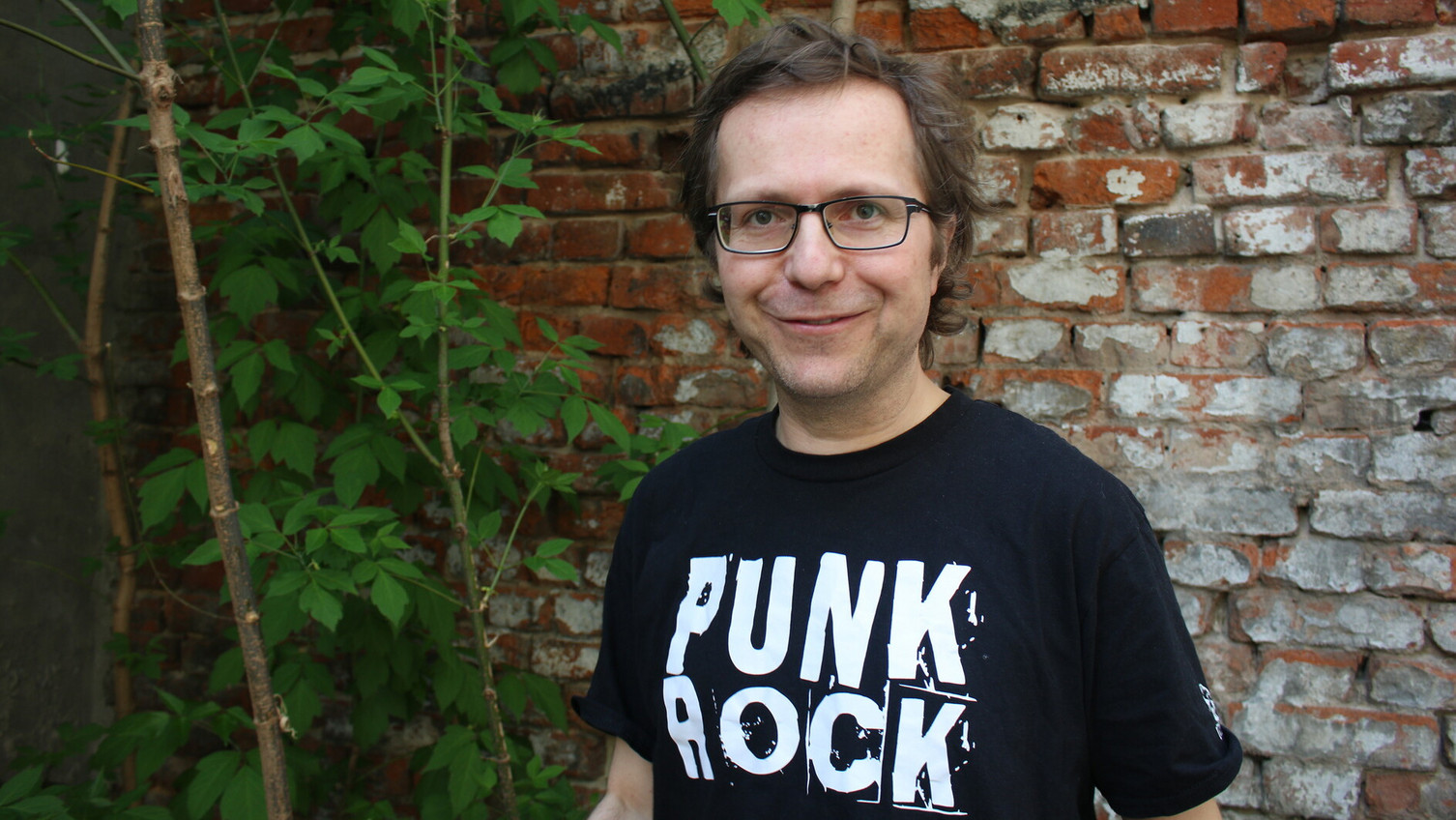Humboldt Research Fellow Prof. Dr. Patryk Gałuszka: The Example of Dua Lipa
2023-04-18 The Polish researcher at the Institute of Fine Arts, Music and Education is investigating the significance of showcase festivals for up-and-coming artists, especially from Eastern Europe. In this way, Dr. Patryk Gałuszka wants to help democratise the music market: "Popular music is still Anglo-American dominated."
For about 20 years, the music industry has been undergoing a radical upheaval. Streaming platforms and YouTube replaced CD & Co. Actually, it's a good time for aspiring young artists, because never before has it been so technically easy to release your own song or an album. But that's only one side of the coin: "There has never been so much competition on the music market as there is today," says media studies expert Patryk Gałuszka. The paradox here is that the big music labels still enjoy dominant position because they often hold music rights of big stars like the Beatles or Michael Jackson. This makes them economically strong.
Nevertheless, there are ways for young artists to become more visible and perhaps later make a living from their music - without the help of a major label. Patryk Gałuszka has been studying the Reeperbahn Festival since 2021. The Polish scholar is funded by the Alexander von Humboldt Foundation's Research Fellowship for Experienced Scholars. He is particularly interested in Eastern European artists who are very active but hardly known beyond their own countries.
As a so-called showcase festival, the Reeperbahn Festival is a music fair, conference and concert stage all in one. During the day, musicians, managers, concert promoters and representatives of record companies meet at the lectures and panels. In the evening, up-and-coming bands and solo artists play in Hamburg's clubs. Patryk Gałuszka spoke with representatives of the music industry and artists and examined how aspiring artists can use showcase festivals for their success: "Be well prepared and choose the right moment in your career," summarises the scholar.
Especially inexperienced bands should not play too early in front of managers or bookers, advises Patryk Gałuszka. At the beginning of their career, it can make sense to play at smaller festivals to gain experience and build “band’s CV“. The Reeperbahn Festival, on the other hand, is one of the biggest showcase festivals in Europe and is especially interesting for the competitive German market. At the Great Escape Festival in Brighton or the ESNS in Groningen, too, the competition is enormous, he says. "Bands should find out exactly which festival is right for their path," the researcher explains. A business background is also helpful, he says: "A band‘s manager should make sure that the industry professionals see their performance at the showcase festival." In addition, there is dedicated fan work, both in the social media and at the venue.
Patryk Gałuszka sees showcase festivals as a tool which can help artists from underrepresented countries reach global audiences: "Pop music is still Anglo-American dominated. Rock'n'roll was born in the USA in the 50s. The Beatles became big in Liverpool in the 60s. Even today, the global stars are usually Anglo-Americans," explains Patryk Gałuszka. That a Hungarian or a Polish woman will fill Western European or American stadiums, on the other hand, is hardly conceivable, he says. The success of Dua Lipa, who recently had a huge hit with Elton John, greatly illustrates these inequalities: "Dua Lipa's parents come from Kosovo, but the singer herself was born in London and became famous there. I don't think she could have started the same career in Pristina."
Dr Patryk Gałuszka is an associate professor at the Faculty of Economics and Sociology at the University of Lodz in Poland. His research interests include creative industries, popular music studies and economic sociology. He has been a visiting scholar at the Institute of Advanced Studies at the Central European University, at the University of Hamburg, at the Max-Planck-Institute for the Study of Societies, the University of California, Berkeley, and the University of Groningen. The Humboldt Foundation is sponsoring his research project "Reconsidering inequalities in the global music market: Eastern European artists' use of showcase festivals". Patryk Gałuszka will publish the results in a book.

